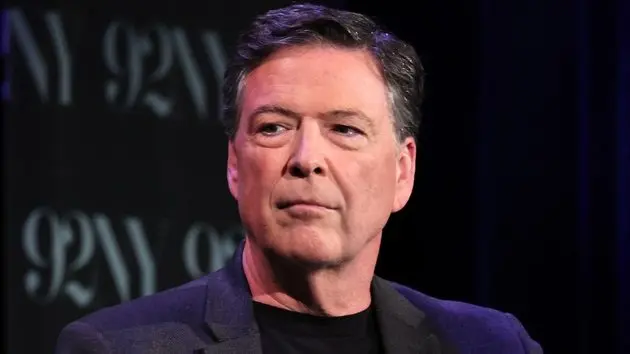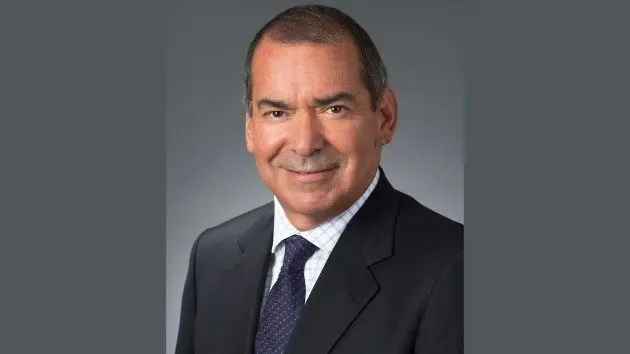(WASHINGTON) — Attorneys for former FBI Director James Comey and New York Attorney General Letitia James have asked a judge to throw out their criminal indictments on the basis that the Trump-installed prosecutor who charged them was appointed unlawfully.
At a hearing Thursday, U.S. District Judge Cameron Currie pressed Justice Department lawyers on the government’s conduct in bringing indictments against Comey and James, which were brought just weeks apart at the direct urging of President Donald Trump after he removed a previous appointee overseeing the powerful U.S. Attorney’s Office in the Eastern District of Virginia and replaced him with Lindsey Halligan, a White House aide and former insurance lawyer with no prior prosecutorial experience.
Lawyers for Comey, who has pleaded not guilty to allegedly making false statements to Congress, and James, who has pleaded not guilty to mortgage fraud-related charges, argued that the cases against them are “fatally flawed” because Halligan’s appointment violates the Constitution’s Appointments Clause.
Judge Currie said she would plan to rule before Thanksgiving.
While Currie didn’t indicate how she will ultimately rule, her questions suggested she was skeptical of the government’s actions in their rushed appointment of Halligan, who quickly moved to bring charges against two of Trump’s perceived political foes without the support of career prosecutors in her office.
Some of the arguments centered around revelations in a legal brief earlier this month that, more than a month after Halligan was appointed to lead the office, U.S. Attorney General Pam Bondi signed an additional order that sought to retroactively appoint Halligan as a “Special Attorney” who she had authorized to seek the indictments of Comey and James.
In her order, Bondi said that “based on my review” of Halligan’s appearances before the grand juries that indicted both Comey and James, she sought to further ratify support of her actions.
But Judge Currie said that was not possible because Bondi “couldn’t have” reviewed all of those materials. The judge revealed during the hearing that there is a portion of the transcript of Halligan’s presentation to the grand jury — from 4:28 p.m. on the day of the indictment until the indictment was returned — that is missing.
It “appears to me,” the judge said, that there was “no court reporter present,” and if there was, “she didn’t transcribe that portion.”
“How does the AG say she has reviewed” the grand jury material “when they didn’t exist?” the judge asked?
Henry Whitaker, who argued on behalf of the government, told the judge that Bondi’s “awareness of the material facts” was all that was necessary to sign a document retroactively ratifying Halligan’s appointment.
Whitaker further argued that the issues raised by Comey and James in seeking to invalidate Halligan’s appointment were based on “at best, a paperwork error” and requested that if Currie were to disqualify Halligan, that she leave the indictments in place.
The legal challenge comes on the heels of other successful efforts to disqualify prosecutors that the Trump administration had attempted to install in at least three other U.S. attorneys offices in Los Angeles, Nevada and New Jersey beyond the 120-day limit set by federal law.
Judge Currie, an appointee of former President Bill Clinton from South Carolina, was appointed last month to oversee the challenge to Halligan’s appointment.
In legal briefs, attorneys for both Comey and James have pointed to the unusual series of developments leading up to Halligan’s eventual appointment to lead the office after the ouster of Erik Siebert, who judges in the Eastern District of Virginia had unanimously voted to lead the office on an interim basis after his 120-day appointment by Attorney General Pam Bondi had expired.
Siebert, as ABC News previously reported, had resisted bringing the cases against both Comey and James after career prosecutors in the office determined evidence against them would likely fail to convince a jury of their guilt.
But just four days after Halligan was installed to lead the office, according to sources, she dismissed recommendations of prosecutors and personally presented the charges against Comey before a grand jury, which voted to indict him on two of three counts sought by Halligan. Just two weeks later, Halligan again personally appeared before a grand jury to seek James’ indictment.
“The President and Attorney General appointed the President’s personal lawyer as interim U.S. Attorney in violation of a clear statutory command so that the interim U.S. Attorney could indict an outspoken critic of the President just days before the relevant statute of limitations was set to expire,” Comey’s attorneys said in a filing last month.
Critics say the indictments are part of a campaign of retribution by Trump against his perceived political foes, but Vice President JD Vance has said any such prosecutions are “driven by law and not by politics.”
Both James and Comey have urged Judge Currie to dismiss their indictments with prejudice, which would restrict from the government from bringing charges against them again if Halligan’s appointment were to be invalidated.
Copyright © 2025, ABC Audio. All rights reserved.






